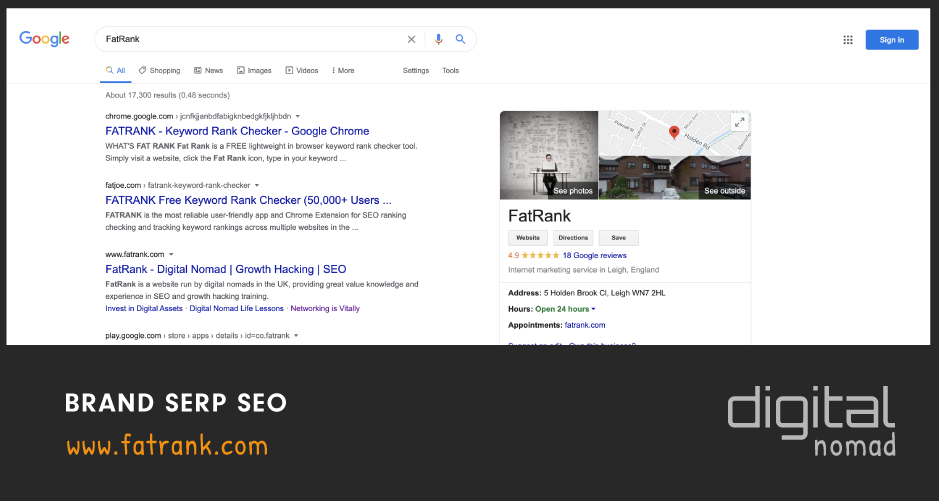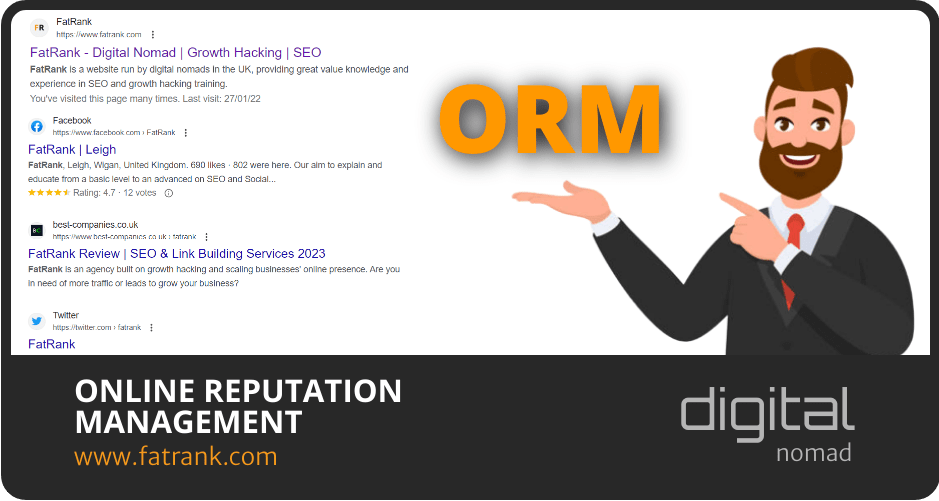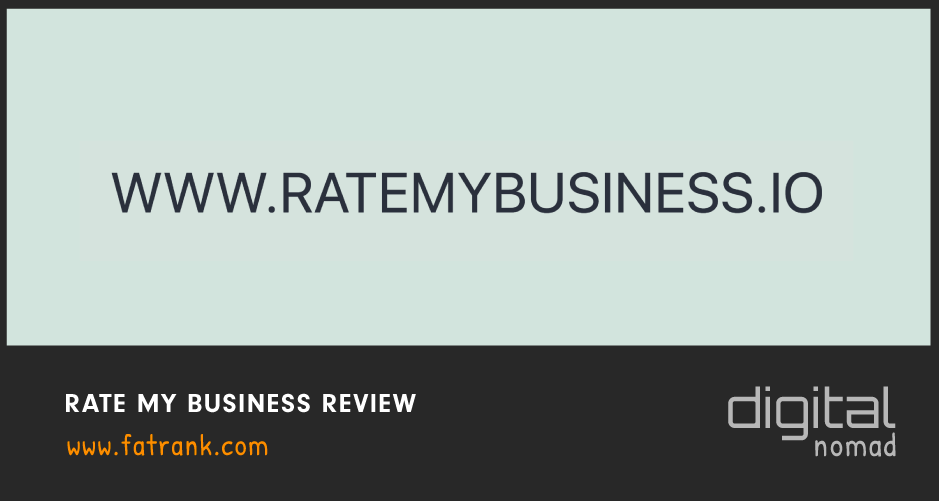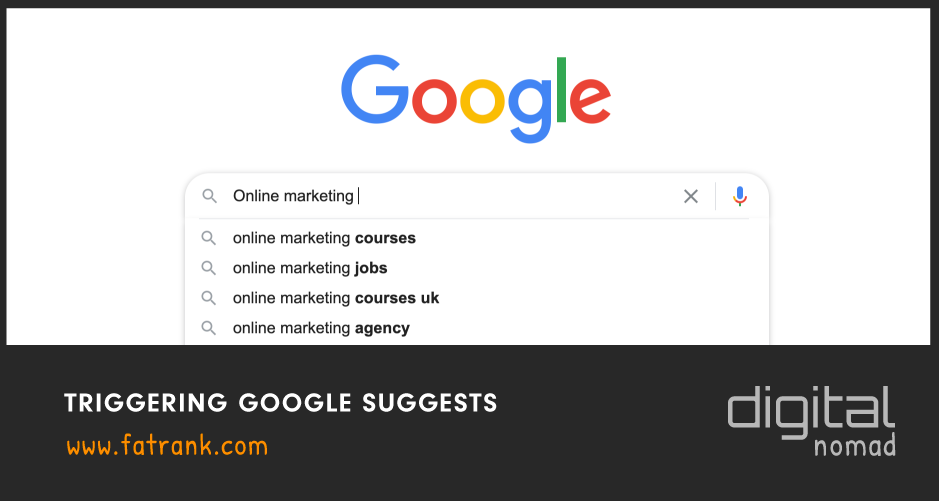
How To Build An Online Presence
In today’s digital age, a strong online presence is crucial for businesses and individuals. An online presence is the sum of all the digital identities and online activities an individual or business has established. A robust online presence can significantly impact visibility, credibility, and customer engagement, from websites and social media profiles to search engine rankings and content creation.
This comprehensive guide will delve into the importance of building and maintaining an effective online presence. We’ll explore the various strategies, including creating a website, utilizing social media platforms, optimizing for search engines, and engaging with your audience. We’ll also highlight common mistakes to avoid, such as inconsistent branding and neglecting negative feedback, and discuss the importance of staying updated with the latest trends and utilizing data and analytics.
Whether you’re a business looking to expand your reach or an individual building a personal brand, understanding the dynamics of online presence is essential. We’ll also address the time it takes to build a strong online presence, covering short-term and long-term strategies to help you set realistic expectations and achieve sustainable results.
So, if you’re ready to enhance your digital footprint and make a lasting impact in the online sphere, let’s dive into the key aspects of building an effective online presence.
Contents
- What Is An Online Presence?
- Why Is An Online Presence Important?
- How To Build An Online Presence?
- What Are The Common Mistakes To Avoid When Building An Online Presence?
- How Long Does It Take To Build An Online Presence?
- Frequently Asked Questions
- 1. How can I build an online presence for my business or brand?
- 2. Do I need a website to have an online presence?
- 3. How important is social media for building an online presence?
- 4. What content should I create to build an online presence?
- 5. How long does it take to build a strong online presence?
- 6. Can I outsource the task of building an online presence?
- Related To How To Build An Online Presence Topics
What Is An Online Presence?
An online presence refers to the sum of all the identities a business has created and the interactions with its customers on the internet.
It encompasses a variety of digital channels, including social media platforms, websites, and search engine results. A strong online presence is crucial in today’s digital landscape, as it directly influences a business’s digital identity and customer interactions. It serves as a gateway for potential customers to discover and engage with a brand, making it essential for businesses to maintain a consistent and compelling online presence.
Why Is An Online Presence Important?
An online presence is crucial for businesses as it increases visibility, builds credibility, and enhances customer engagement.
In today’s digital world, the online presence is like a storefront that showcases a company’s products and services to a vast audience. When a business establishes a strong online presence, it can attract potential customers who might not have found them otherwise. This increased visibility can lead to greater brand recognition and market reach, ultimately contributing to improved sales and growth.
An active online presence also allows businesses to communicate with their audience, build trust, and demonstrate industry expertise, which all contribute to enhancing customer engagement and loyalty.
Increases Visibility
An effective online presence increases the visibility of a business, allowing it to be easily found by potential customers through search engines and online directories.
This heightened visibility is crucial for marketing efforts, as it enables the business to reach a wider audience and attract more potential customers. It plays a pivotal role in search engine optimization (SEO), enhancing the website’s ranking in search results and driving organic traffic. In addition, strong online presence increases the likelihood of appearing in directory listings, presenting the business to users specifically seeking the products or services it offers. As a result, businesses with a robust online presence are better positioned to capitalize on the opportunities presented by the digital marketplace.
Builds Credibility
A strong online presence builds credibility for a business, shaping its reputation and brand image in the eyes of customers and stakeholders.
Establishing a reputable online presence involves consistent and genuine interactions with customers, transparent communication, and a commitment to delivering valuable and reliable content. These elements contribute to building trust and credibility, essential for fostering positive brand perception and loyalty.
Actively engaging in reputation management by promptly addressing customer feedback and managing online reviews portrays authenticity and care for customer satisfaction, further enhancing the company’s credibility in the digital landscape.
Expands Reach
An impactful online presence expands the reach of a business, connecting it with a broader audience through targeted advertising and engaging social media platforms.
By utilizing targeted advertising, businesses can direct their marketing efforts to specific demographics and interests, thereby maximizing the impact of their online presence. This strategic approach allows for efficient allocation of resources and increased visibility among the intended audience.
Active engagement on social media platforms fosters direct interaction with current and potential customers, creating a community around the brand. Content sharing, interactive posts, and customer feedback contribute to a dynamic and vibrant online presence that resonates with diverse individuals.
Enhances Customer Engagement
A well-established online presence enhances customer engagement by providing valuable content and interactive platforms that resonate with the target audience.
This engagement is fostered through the implementation of effective content strategies that involve creating and sharing high-quality, relevant, and informative material. Interactive platforms, such as social media, forums, and chatbots, are crucial in facilitating direct audience interaction and feedback gathering. These platforms also enable businesses to understand their customers better, address their queries, and tailor products or services to their needs, establishing a strong and ongoing connection with the audience.
How To Build An Online Presence?
Building an online presence involves creating a website, utilizing social media platforms effectively, and optimizing content for search engines.
When creating a website, focusing on user experience, mobile responsiveness, and engaging, informative content is vital. Social media platforms offer a valuable opportunity to connect with the audience, build brand identity, and drive traffic to the website through engaging posts, interactions, and targeted advertising.
SEO optimization plays a crucial role in increasing the visibility of the website. This involves keyword research, on-page optimization, link building, and ensuring a seamless user experience. By integrating relevant keywords in the content and meta descriptions, the website can rank higher in search engine results, attracting organic traffic and potential customers.
Create A Website
Creating a professional website is essential for establishing a strong online presence, providing a central platform for showcasing a business, and leveraging tools like Google Analytics for insights.
When designing a website, it’s crucial to consider SEO strategies to improve visibility on search engines. Analyzing relevant keywords and integrating them seamlessly into the website’s content can significantly impact its performance. Incorporating user-friendly navigation and visually appealing design elements enhances the overall user experience, keeping visitors engaged. Regularly monitoring website traffic and visitor behavior using analytics tools such as Google Analytics allows detailed insights into user preferences and site performance, enabling informed decisions to maximize the website’s efficiency.
Use Social Media Platforms
Leveraging social media platforms such as Facebook, Instagram, and LinkedIn is instrumental in extending the online presence of a business, and fostering engagement with a diverse audience.
A strategic approach to social media usage is crucial in building online brand recognition. Each platform serves a different purpose and caters to a distinct audience. Hence, it’s essential to tailor content to match the platform’s demographics and user behavior.
For instance, Facebook provides a versatile space for sharing diverse content formats, while Instagram revolves around visual appeal, making it ideal for businesses with visually stimulating products or services. On the other hand, LinkedIn is well-suited for professional networking and showcasing industry expertise.
Engaging with the audience on these platforms involves more than just broadcasting content; it requires active interaction, responding to comments, and participating in discussions. This two-way communication fosters community and trust, paving the way for a loyal following and increased brand advocacy.
Optimize For Search Engines
Optimizing content for search engines is critical to building an online presence, ensuring visibility and discoverability across platforms like Google, Bing, and Yahoo.
By implementing effective SEO strategies, businesses can increase their chances of appearing prominently in search engine results, ultimately driving more traffic to their websites. Utilizing relevant keywords in content improves organic search rankings and enhances the overall user experience. Leveraging search engine optimization techniques allows companies to stay competitive in the digital landscape, attracting potential customers and creating long-term brand awareness.
Create Quality Content
Generating and sharing high-quality content is a key strategy for enhancing online presence, capturing audience attention and fostering engagement, leveraging platforms like Amazon and Betabrand.
Quality content is the foundation of a compelling online presence, creating a lasting impression on visitors and potential customers. With informative, entertaining, and valuable content, businesses can establish themselves as authoritative figures in their respective industries, thereby gaining the trust of their target audience.
Companies can maintain relevance and keep their audience engaged through consistent content creation. Regularly updating blogs, social media posts, and website content positions a brand as current and responsive and presents opportunities for interactions and feedback from the audience. This engagement fosters a sense of community, where individuals feel heard and valued, leading to increased brand loyalty and advocacy.
Regarding content distribution, platforms like Amazon and Betabrand offer unique opportunities to reach a wider audience. By effectively leveraging Amazon’s robust e-commerce infrastructure or Betabrand’s active community, businesses can extend their reach, increase brand visibility, and attract new potential customers. This, in turn, enhances the overall online presence and solidifies the brand’s position in the competitive digital landscape.
Engage With Your Audience
Actively engaging with the target audience through interactive content and communication channels on platforms like Snapchat and TikTok strengthens the online presence of a business.
Interactive content plays a crucial role in keeping the audience captivated and involved, thereby ensuring a strong and sustainable connection with potential customers. Businesses can forge authentic relationships and build brand loyalty by creating compelling and engaging content that encourages participation.
Utilizing effective communication strategies, such as prompt responses to comments and messages, showcases a commitment to customer satisfaction and strengthens trust in the brand. Platforms like Instagram and Twitter provide avenues for open dialogue, enabling businesses to connect with customers personally, gain valuable feedback, and address concerns in real-time.
Collaborate With Other Businesses
Strategic collaborations with other businesses, such as Adaptive Marketing and Software Advice, can amplify a brand’s online presence through shared audiences and expanded reach.
By partnering with complementary businesses, companies can tap into new customer bases and target demographics they may not have reached otherwise. This joint approach allows sharing of resources, knowledge, and expertise, leading to enhanced brand visibility and credibility in the market.
Collaborative efforts often result in cost-efficient marketing strategies, as the burden of promotional activities is shared among the partners. This can free up resources for both businesses, enabling them to explore more innovative and impactful marketing initiatives.
What Are The Common Mistakes To Avoid When Building An Online Presence?
When building an online presence, it’s crucial to avoid common mistakes such as inconsistent branding, ignoring negative feedback, neglecting data and analytics, and not staying up-to-date with current trends.
Consistency in branding is key; using the same logo, color scheme, and tone across all platforms can help build a recognizable identity.
Addressing negative feedback promptly and professionally is vital to maintaining a positive image.
Data and analytics can provide valuable insights into user behavior and content performance, guiding strategic decisions.
Keeping abreast of current trends allows for timely adjustments to content and approach, ensuring relevance and engagement with the target audience.
Inconsistent Branding
Inconsistent branding across platforms can undermine the online presence of a business, affecting its reputation and recognition, especially on major platforms like Google and Facebook.
When a company’s branding is inconsistent, it creates confusion among customers and weakens the perceived reliability of the business. This can result in lost opportunities and a decrease in customer trust.
On Google, inconsistent branding can impact search engine rankings, making it harder for potential customers to find the business.
On Facebook, inconsistent branding can lead to reduced engagement and a lack of brand recognition among the platform’s users.
As a result, managing and maintaining a consistent brand image across all online channels is crucial for building a strong and reputable online presence.
Ignoring Negative Feedback
Neglecting negative feedback can have detrimental effects on the online presence of a business, impacting its reputation and customer engagement, particularly on influential platforms like LinkedIn and Statista.
Failing to address such feedback tarnishes the brand image and erodes customer trust and loyalty. In today’s digital age, where social proof holds immense power, a single negative comment left unattended can potentially dissuade numerous potential customers. Disregarding negative feedback on influential platforms such as LinkedIn and Statista can further exacerbate the situation, as these platforms carry significant weight in professional circles and industry insights.
Effective reputation management is essential to maintain goodwill and foster a positive rapport with the audience.
Not Utilizing Data and Analytics
Failing to utilize data and analytics effectively hampers the optimization of an online presence, missing out on valuable insights and performance metrics, particularly on platforms like Amazon and Google Analytics.
For businesses, leveraging data and analytics is crucial for making informed decisions and driving growth. By leveraging the capabilities of data through platforms such as Google Analytics, companies can gain invaluable insights into customer behavior, website engagement, and the effectiveness of marketing campaigns. Using such analytics, businesses can identify opportunities for improvement, refine their online presence, and measure the impact of their digital strategies.
On platforms like Amazon, leveraging data can enhance product visibility, optimize pricing strategies, and understand consumer preferences, giving businesses a competitive edge.
Not Staying Up-to-Date with Trends
Failing to stay up-to-date with current trends can hinder the relevance and impact of an online presence, affecting marketing strategies and audience engagement, especially on platforms like Bing and Manifest.
When an online presence fails to align with current trends, it can result in missed opportunities for market adaptability and audience relevance. Keeping in tune with the ever-evolving trends is crucial for maintaining visibility and resonance with the target audience. Whether it’s leveraging the latest algorithm changes on search engines like Bing or tapping into the trending content on platforms such as Manifest, adaptability is essential for a successful online presence. By staying attuned to the specific trending platforms, marketers can ensure that their strategies remain effective and their brand stays top of mind.
How Long Does It Take To Build An Online Presence?
The time required to build an online presence varies depending on the strategies employed, with short-term approaches typically yielding results within 1-3 months, while long-term strategies may take 6 months or more to manifest significant impact.
Short-term strategies often focus on immediate results, such as pay-per-click advertising, social media campaigns, and influencer partnerships. These methods aim to generate quick visibility and engagement, positioning the brand swiftly in front of its target audience.
Conversely, long-term approaches prioritize sustainable and enduring effects, like search engine optimization (SEO), content marketing, and organic social media growth. Although these methods necessitate consistency and patience, they lay a strong foundation and have the potential to yield compounding benefits over time.
Short-term Strategies (1-3 Months)
Short-term strategies for building an online presence focus on rapid visibility and marketing impact, often leveraging targeted advertising and promotional efforts on platforms like Yahoo and HubSpot to achieve immediate results within 1-3 months.
These short-term tactics revolve around targeted campaigns that can quickly boost a company’s online visibility through strategic promotional activities. For instance, utilizing pay-per-click (PPC) advertising on Yahoo can immediately place a brand in front of a relevant audience. Simultaneously, leveraging HubSpot’s inbound marketing tools can foster quick engagement and lead generation, contributing to the growth of the online presence within a relatively short timeline. The emphasis on immediate impact characterizes these strategies as agile and focused on quickly establishing a formidable online footprint.
Long-term Strategies (6+ Months)
Long-term strategies for establishing an online presence prioritize sustainable growth, audience engagement, and brand resonance, requiring consistent efforts and presence on platforms like Google and LinkedIn over an extended period, typically 6 months or more.
During this time, it is vital to continually create and share relevant, high-quality content that resonates with the target audience and aligns with the brand’s values and messaging. Incorporating search engine optimization (SEO) best practices, such as using targeted keywords and optimizing meta descriptions, contributes to improving visibility and ranking on search engine results pages.
Engagement on social media platforms, through meaningful interactions, sharing valuable insights, and participating in relevant industry discussions, aids in building a loyal community and establishing the brand as an authoritative voice in its field, contributing to long-term sustainability.
Frequently Asked Questions
1. How can I build an online presence for my business or brand?
Building an online presence involves creating a strong digital presence for your business or brand through various online platforms. This can include having a website, being active on social media, and creating valuable content for your target audience.
2. Do I need a website to have an online presence?
While a website is a valuable tool for building an online presence, it is not the only way. Social media platforms such as Facebook, Instagram, and LinkedIn also allow businesses and brands to have a strong online presence.
Social media is crucial to building an online presence as it allows you to connect with your target audience, share valuable content, and establish your brand’s personality and voice. It also helps drive traffic to your website and increase brand visibility.
4. What content should I create to build an online presence?
The type of content you create will depend on your target audience and your brand’s goals. It’s important to have a mix of informative, engaging, and promotional content to keep your audience interested and build a loyal following.
5. How long does it take to build a strong online presence?
Building an online presence is an ongoing process and can take time. It’s essential to be consistent with your efforts and continuously engage with your audience. With the right strategies and consistent effort, you can see results within a few months.
6. Can I outsource the task of building an online presence?
Yes, many agencies and freelancers specialize in building and managing online presences for businesses and brands. However, choosing a reputable and experienced professional is crucial to ensure the best results for your brand.
Related To How To Build An Online Presence Topics
Here are all the topics related to How To Build An Online Presence in July 2024.
- Brand Jacking

- Brand SERP SEO

- Brand SERPs Course

- Branded Corporate Video Production Service

- EEAT SEO

- Getting Featured in Google News

- How To Build An Online Presence

- How To Market Your Business

- Link Building For Author Bio

- Link Building For Awards Won

- Newsjacking

- Online Reputation Management

- Opinion Sculpting

- Rank Jacking

- Rate My Business Review

- Reputation Management Agencies

- Reviews To Improve Your Online Reputation

- Trend Jacking

- Triggering Google Suggests

- Why is seomerch the market leader in SEO focused merchandise?

- Why Isn't My Website Showing Up On Google


About FatRank
Our aim to explain and educate from a basic level to an advanced on SEO and Social Media Marketing.
